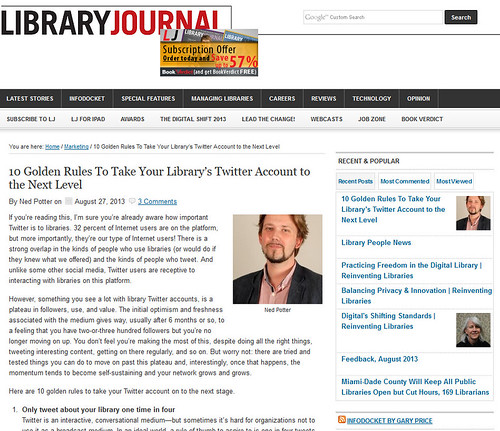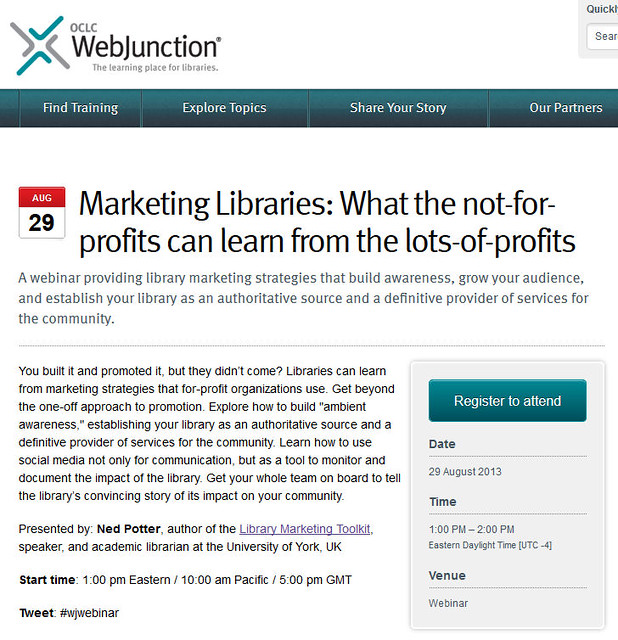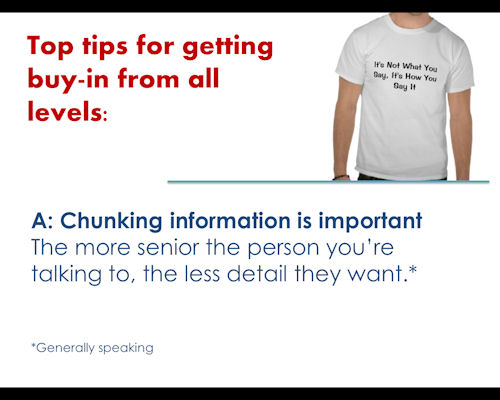Reblogged from the Library Marketing Toolkit
Pew Internet have just released their 10 key findings from their Library research:
The slide I'm particularly interested in is number 11, which tells us that:
- 22% say they know all or most of the services their libraries offer
- 46% know some of what their libraries offer
- 31% know not much or nothing at all of what their libraries offer
.
.
Initially this makes somewhat depressing reading, statistical proof of what we've all known for a long time: the public don't understand what modern libraries actually DO. The library brand is so synonymous with 'book' that there's little room for the many and varied services we offer, and it really is the services we must emphasize in our marketing, now the content we provide is often readily available by other means. Ambiguity or confusion is the enemy of great marketing - simple messages stick so much better. But inevitably, as we change to accommodate the new needs of our users, and add more and more aspects to the offer we make, it becomes harder to summarize the modern library and easily communicate how we can help people in their lives.
Actually though, the figures aren't that bad. 22% is a surprisingly high number to know most or all of the services their library offers - I'm not sure I know all the services my library offers and I work there! With an offering as diverse as ours no one needs ALL that we offer, so what matters is not everyone knowing everything, but each group knowing what is relevant for them. Perhaps it's time to stop worrying about whether people 'understand' modern libraries in general, and move on to simply ensuring that the parents know what services we offer for children, the people on the wrong side of the digital divide know we can help them get online and use new technology , the people who hold the purse strings know how important we are to the local community, and so on.
This process is formally referred to as 'segmentation' or 'segmenting the market' - dividing your users up into groups, basically, and tailoring the message to suit each one. It's something library marketing types go on about a lot, and perhaps fills non-marketing types with dread... But it doesn't have to be intimidating. At its simplest level, you’re targeting each group with a slightly different aspect of the same message, making sure they know about one key service relevant to them, and then letting them discover the rest once they’re in through the door.
Going back to Pew’s findings. the 31% who know nothing of the library is much more worrying. But again, the approach needn't be 'how do we tell all 31% everything we do in the Library!' - it can be about dividing that 31% up into existing segments, and targeting them with relevant services. The average person in the street doesn't need to think 'I know all about the Library'; they just need to think 'I want to start looking into the genealogy of my family tree, and I know the Library can help me', or whatever their need might be. Segmenting the market is hard to do, but it's proper marketing - the results can be hugely beneficial.





